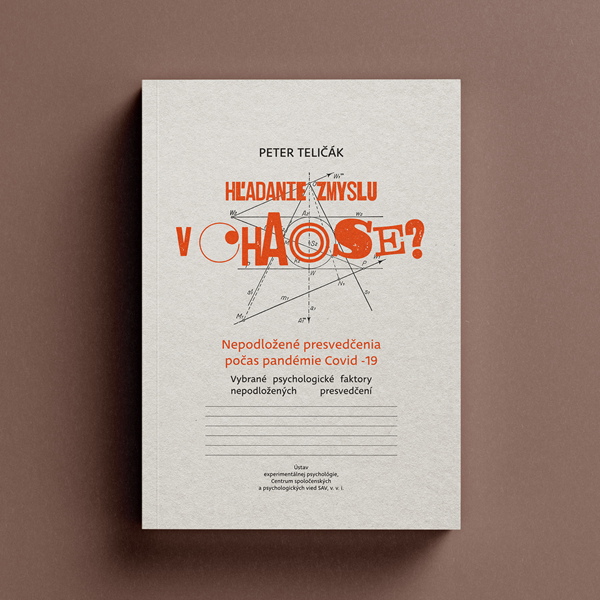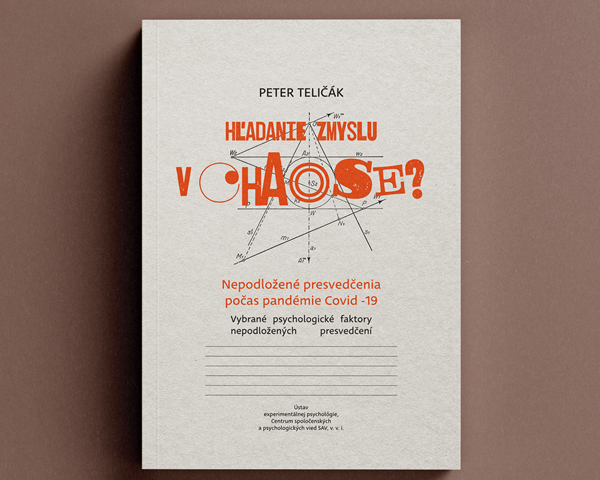Searching for meaning in chaos? A new publication explores the psychology of unfounded beliefs in times of crisis

A new academic publication by psychologist Peter Teličák reveals why people (not only) during the recent pandemic believed in unfounded claims – and how they used these beliefs to make sense of the world around them.
How does the mind respond to uncertainty and chaos? What psychological mechanisms lead even educated people to believe in conspiracy theories or pseudoscience? And can a sense of meaning in life act as a protective factor? Answers to these questions are provided in the new monograph titled “Searching for Meaning in Chaos? Unfounded Beliefs during the COVID-19 Pandemic,” which was developed as part of the research project APVV–20-0387.
The book offers a comprehensive overview of the psychology of unfounded beliefs, including:
• conspiracy and pseudoscientific theories,
• evolutionary, emotional, and personality factors that support them,
• ways to effectively refute them through argumentation,
• research exploring the connection between life meaning, anxiety, and unfounded beliefs.
This publication is intended not only for specialists but also for the wider public who wish to better understand the human need to find order in chaos – even at the cost of abandoning rationality. You can download it here.
Views: 14

